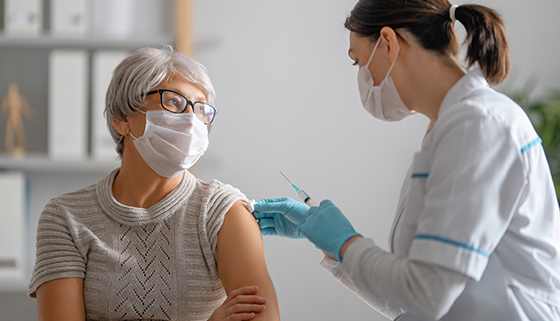- Monkeypox is a viral infection that primarily spreads via skin-to-skin contact.
- Infections have progressively increased since the first case was identified in the United States in May, with New York, California, and Illinois recording the highest rates.
- A vaccine can aid in preventing both the onset of an infection and the emergence of symptoms. Unlike many other vaccinations, not everyone is eligible to receive them.
- You can get advice about your eligibility from your main healthcare practitioner.
- When we think we have one infectious illness under control, another shows up: Monkeypox
Health officials have deemed the situation a public health emergency and are attempting to accommodate the rising demand for vaccines as monkeypox cases are increasing across the nation. Americans have access to two different vaccinations that can help avoid the illness, which frequently manifests as painful or itchy rash and flu-like symptoms. However, only a small number of people are being urged to get immunized at this time due to a shortage of supplies and a preference for one vaccine over another.
What you should know about the monkeypox vaccines being used in the current outbreak, including whether you might qualify for a shot, is provided below.
What Vaccination Choices are Available?
The first is a two-shot series called Jynneos that is administered four weeks apart and has been given the go-ahead by the Food and Drug Administration to prevent smallpox and monkeypox. The most widely accessible and favored vaccine in the United States is this one. However, supplies are limited. By the middle of 2023, millions more doses are anticipated to slowly enter the nation.
ACAM2000, an outdated smallpox vaccine, is also available and, with the proper expanded access procedure, can be utilized to stop the present monkeypox outbreak. In contrast to Jynneos, this single-shot vaccine uses a live version of a different pox virus and carries a higher risk of adverse reactions, including myocarditis and pericarditis (inflammation and swelling of the heart and its surrounding tissues), as well as potentially life-threatening skin infections. As such it is not advised for those with heart and skin disorders, as well as those with severely vulnerable immune systems.
Jynneos was determined to be the better vaccine following a comparison of the benefits and side effects of the two vaccines. Consequently, prior to administration, a health professional’s advice is essential.
Who Should Receive one?
The Centers for Disease Control and Prevention (CDC) advises vaccination for those who are most susceptible to monkeypox, though this recommendation may alter as vaccine supplies grow. And even though anyone can acquire monkeypox, the bulk of those who are currently contracting the disease are guys who are engaging in many partners and intercourse with other men in locations where the virus is spreading, according to medical professionals. For those in monogamous relationships, the risks are significantly lower.
The current recommendation is that individuals who are most susceptible to getting the virus should be the first in line for the vaccine. People whose occupations could expose them to monkeypox, such as laboratory personnel who test for the virus and some health care professionals.
Last but not least, vaccination is advised if you know you have been exposed to monkeypox since it can delay the start of illness or lessen its severity even after exposure. The CDC advises taking the vaccination within four days of exposure, so the earlier you receive it, the better.
Am I Protected if I Received a Smallpox Vaccination?
Routine smallpox immunization was stopped when the disease was eradicated in the U.S. in 1972, but many elderly people recall receiving the shot, raising the question of whether they are still safe due to the prior vaccine. Using a recent study published in The Lancet that revealed that some people who received the smallpox vaccine as children later developed monkeypox, health professionals have stated that it’s questionable how well a vaccine you received so long ago still protects you.
According to the WHO, individuals under the age of 40 to 50 (depending on the nation) may be more vulnerable to monkeypox because smallpox vaccination campaigns ceased once the illness was declared eradicated. More study is conducted though.
Where can I get Vaccinated against Monkeypox?
Consult your health care physician about getting vaccinated if you’re interested. Additionally, the regional or state health authorities could provide vaccination clinics.
What Further Precautions can I take against Monkeypox?
Even if you are ineligible for a monkeypox vaccine, there are steps you may take to avoid contracting the disease.
- The most important one is to refrain from making physical contact with someone who has a known infection.
- Also, especially in locations where the rate of spread is high, think twice before attending any major events that may include extended durations of skin-to-skin contact with others .
- Discuss any symptoms you may be experiencing with your sexual partners and maintain open contact with them. In light of the outbreak, the CDC also provides advice for safer social gatherings and sexual encounters.
- Remember to wash your hands frequently to avoid contracting any diseases.
There is hope at least as the CDC is currently keeping a close eye on the issue and updating its website frequently. Despite an increase in cases, the good news is that monkeypox is a self-limiting illness and isn’t quite as contagious as other viruses.

Interesting